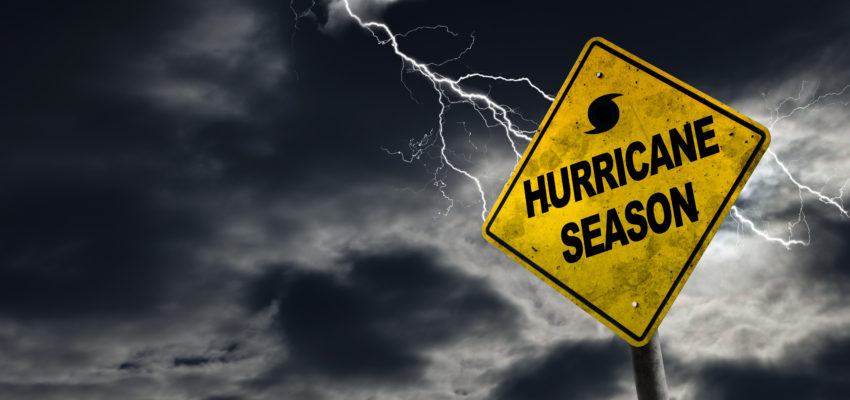Preparing for Hurricane Season

Hurricane season is here, and with it the potential to cause widespread damage to both coastal and inland areas. From storm surges to high winds, we’re here to help you weather the storm—and protect your home—with our Hurricane Preparedness FAQs.
What Should I Do Before a Hurricane?
The most important thing is to have an evacuation plan. Know how you’re evacuating, and where you can shelter safely. You should determine your best protection from high winds and flooding, and prepare the supplies you’ll need when a hurricane hits. If you’re advised to evacuate, you’ll need to do so immediately.
How do I create an evacuation plan?
Know where you’re going, how you’re getting there, and where you’re staying. Note that mobile homes and recreational vehicles (RVs) will not provide safe shelter.
You may be living without power, water, gas, phone, or internet for a while. Find a designated safe shelter for high winds, and practice your travel route there. Other good options include small, windowless interior rooms in sturdy buildings. You should aim for the lowest level that isn’t likely to flood, and if in an area more prone to flooding, look for a higher ground location you can move to.
What emergency supplies should I gather?
Food, water, and medicine should always be in your emergency supply kits. The American Red Cross suggests organizing your kits into a Go-Kit and a Stay-at-Home Kit. A Go-Kit should have 3 days of supplies that can be carried with you, including backup batteries and charges. A Stay-at-Home Kit should have 2 weeks of supplies as stores and pharmacies might be closed, and a 1-month supply of medication (in child-proof containers). You may also consider keeping personal, financial, and medical records in this kit for safety.
How will I stay connected?
You may be without electricity for quite some time, so have a way to charge your cell phone and keep a battery-powered radio on-hand. Be sure to sign up for free emergency alerts from your local government.
What emergency skills should I learn?
Always know First Aid and CPR. In the event you’re without electricity, you should be ready to live without it, and learn how to use a generator safely. If there is any powered medical equipment you need to use, plan how you’ll do so without electricity now.
How Can I Protect My Home Before a Hurricane?
There are lots of things you can do to minimize damage before a hurricane hits, and the most important thing is to make sure you and your home are covered—and that you fully understand your policy—in the event of damage.
How do I protect my home from wind?
Secure all outdoor items. Lawn furniture, trash cans, and other outside items can be picked up by high wind and cause both damage to you and hurt you and other people. Any objects that are unsafe to bring inside, like gas grills and propane tanks, should be anchored. Trees that are close enough to fall on your home should be trimmed or removed. Permanent shutters and pre-cut plywood can help protect your windows.
How do I protect my home from flooding?
Drains, gutters, and downspouts should be cleaned out, and you may want to consider installing a sump pump that has a battery backup. Be sure to stock up on plastic sheeting, sandbags, and other protective materials before the storm hits.
Do I only need to consider flood insurance if I live near a body of water?
You don’t have to live near a body of water to be at risk for flooding—it can happen anywhere it rains. And since a standard homeowner’s policy typically does not cover flooding—we recommend that everyone take a look at flood insurance.
Flood insurance is designed to cover damage and losses that result from external flooding caused by heavy rains, storm surge, snowstorms or overflowing storm drains for example. Just one inch of water in an average-sized home can cost more than $25,000 in damage. You can recover faster and more fully after a disaster with flood insurance.
How do I make sure I’m covered?
To ensure you, your loved ones, your home, and your property are properly protected in the event of hurricane damage, speak to a Bearingstar agent. They’re here to answer your questions, make sure you have the right coverage for you, and explain the ins and outs of your policy. Contact a local Bearingstar agent today to see what policies and options will work best for you/
Call us at 877-801-7424 in Massachusetts, and 888-519-9996 in Connecticut.
Sources:
- Hurricane Safety. American Red Cross. https://www.redcross.org/get-help/how-to-prepare-for-emergencies/types-of-emergencies/hurricane.html
- How to Prepare For A Hurricane. Ready.gov. https://www.ready.gov/sites/default/files/2020-03/fema_how-to-prepare-for-hurricane.pdf
